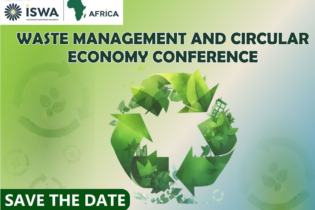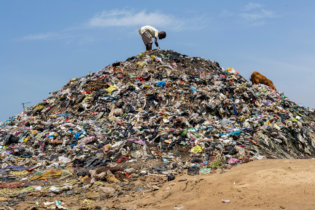Ghana had the political will to envision electrification as a national priority and catalyst for economic development says engineer Andrew T Barfour, Project Coordinator at the Ghana Energy Development and Access Project. To date, Ghana has achieved 72% electrification access, which is one of the highest rates in Sub-Saharan Africa. As one of the headline speakers at the upcoming African Utility Week in Cape Town, Barfour will share with power professionals how Ghana is making rural electrification work.
Multi-donor funded projectThe Ghana Energy Development & Access Project (GEDAP) is a US$312 million multi-donor funded project involving the World Bank, International Development Agency (IDA), Global Environment Facility (GEF), African Development Bank (AfDB), Global Partnership on Output-based Aid (GPOBA), Africa Catalytic Growth Fund (ACGF) and the Swiss Agency for Development and Cooperation (SECO). According to Barfour, the development objective is to improve the operational efficiency of the power distribution system and increase the population’s access to electricity – thereby helping transition Ghana to a low-carbon economy through the reduction of greenhouse gas emissions. The National Electrification Scheme (NES) Policy was instituted in 1989 when national electrification access was about 25%. The goal of the NES is to extend reliable electricity supplies to all communities over a 30-year period (1990-2020). The Self-Help Electrification Programme (SHEP) was introduced by government to encourage communal participation and the self-help developmental initiatives of communities and to support the main NES.
Commitment and collaboration
The enormous progress of the project with the 72% electrification access to date, can be contributed to commitment and collaboration. “The commitment of various governments towards the success of the programme and the contribution of SHEP have helped in the phenomenal success. Also the contribution and collaboration of our development partners has contributed immensely to the success of GEDAP,” he explains. Despite the poverty in the rural areas, the commitment, drive, and acceptance of the SHEP programme pleasantly surprised the managers of the programme. At one point the government could not match up with the communities who were ready to join the initiative.”
Electrification cannot be overemphasised
Barfour says his main message at African Utility Week will be that “in this modern world electrification cannot be overemphasized and therefore all countries must endeavour to ensure electricity is extended to all corners of the continent if we want the economic circumstances of our people to improve for the better”. For the full interview with Barfour, visit http://www.african-utility-week.com/Pages/Detail/3882
African Utility Week
Exhibition & conference: 14 to 15 May 2013
Pre-conference workshops: 13 May 2013
Site visits: 16 May 2013
Venue: CTICC, Cape Town
Website: www.african-utility-week.com





